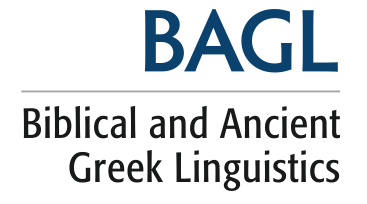4.1 | Joseph D. Fantin Dallas Theological Seminary It is agreed that both context and Greek studies are essential components of
the exegetical process. This article explores the function of language itself within
society. The focus is not on the typical “meaning” of language as an information
carrier but rather on the meaning that the use of particular linguistic elements
brings to the communication situation. In other words, I will consider language
itself as a social phenomenon. In order to achieve this goal, using Acts 21:27–40 as
a test case, I will first consider selective elements of the social and historical
context that when understood will contribute to recreating the context of the
passage (cognitive environment). Then, with this contextual information activated in
the exegetical process, I will consider the social impact of this information on two
recorded speech incidents from Acts 21:27–40 resulting in a better understanding of
the passage. This will demonstrate that in addition to the informational linguistic
meaning, an understanding of the social use of language itself is a valuable tool
for understanding the biblical text. Keywords: Acts 21:27–40, exegesis, sociolinguistics, pragmatics, New Testament
backgrounds, New Testament contexts, cognitive environment, Greek, relevance
theory |
4.2 | Jonathan M. Watt Geneva College, Beaver Falls, PA, USA A sociolinguistic approach to Paul’s language usage in the Jerusalem arrest
narratives of Acts 21–22 offers inferences with regard to his specific language
choices between Greek, Hebrew and Aramaic during his interactions. However, modern
language studies show considerable inter-language penetration that, by implication,
complicate conclusions one may reach with regard to the NT situation. Keywords: sociolinguistics, multilingualism, linguistic repertoire, code-switching,
cross-linguistic penetration |
4.3 | Hughson T. Ong McMaster Divinity College, Hamilton, ON, Canada This article discusses three distinct types of discourse analysis
models—Social Identity Theory and Communication Accommodation Theory (CAT),
Conversation Analysis (CA), and SFL Register Analysis—and applies them individually
to the text in Acts 21:27—22:5 to examine various aspects and elements that comprise
the context of situation of the incident of Paul’s arrest in the temple. The main
objective is to showcase the relevance and utility of sociolinguistic theories in
New Testament exegesis. Keywords: Acts 21:27—22:5, sociolinguistics, exegesis, discourse analysis, social
identity theory, speech or communication accommodation theory, conversation
analysis, register analysis |
4.4 | James D. Dvorak Oklahoma Christian University, Edmond, OK, USA This article approaches the topic of persuasion from a social perspective
rather than rhetorical or socio-rhetorical. This is because, at heart, persuasion—of
others or of self—is ultimately a social action in which values are negotiated.
Dvorak argues that to analyze the persuasiveness of a discourse requires a
sociolinguistic model, and the model that is best suited for the job is Appraisal
Theory, which is built upon the theoretical foundation of Systemic Functional
Linguistics. Keywords: persuasion, appraisal, evaluation, 1 Corinthians, values, power, discourse
analysis |

